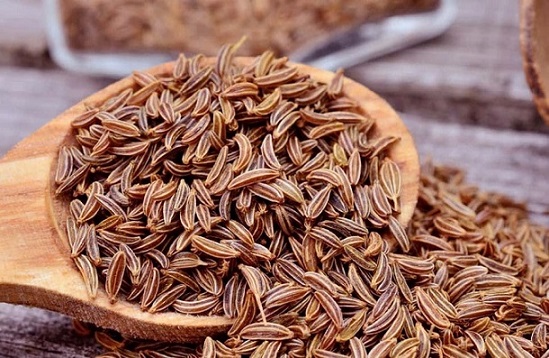Scientist Discover New Cheaper Phytochemical from Caraway Seeds Offers Safer Seizure Relief Than Cannabis
Nikhil Prasad Fact checked by:Thailand Medical News Team Oct 17, 2025 3 months, 4 weeks, 2 hours, 5 minutes ago
Medical News: A Natural Breakthrough from Caraway Seeds
A team of researchers led by the University of Nevada, Las Vegas (UNLV), working alongside scientists from New Mexico State University, has discovered a new cannabidiol-like compound derived from caraway seeds that could transform epilepsy treatment. The compound mimics the therapeutic effects of cannabidiol (CBD) found in cannabis—but without its controversial ties to THC, the psychoactive compound responsible for marijuana’s “high.” This
Medical News report reveals how a humble kitchen spice could lead to safer, more affordable anticonvulsants, especially for children suffering from developmental epilepsy syndromes.
 Scientist Discover New Cheaper Phytochemical from Caraway Seeds Offers Safer Seizure Relief Than Cannabis
From Kitchen Spice to Life-Saving Medicine
Scientist Discover New Cheaper Phytochemical from Caraway Seeds Offers Safer Seizure Relief Than Cannabis
From Kitchen Spice to Life-Saving Medicine
Caraway seeds, a familiar ingredient in breads and stews, contain a compound known as carvone. By reengineering carvone’s molecular structure, the UNLV scientists were able to design a series of synthetic molecules that replicate CBD’s beneficial effects while completely excluding THC. This chemical innovation means patients could one day access cannabis-like therapies without facing the legal, regulatory, or psychological risks associated with cannabis-based drugs.
Safer, More Effective Than Current Treatments
Preclinical studies in mice showed that these carvone-derived compounds powerfully reduced seizure frequency and even prevented seizure-related deaths. Unlike current medications such as benzodiazepines—which often cause sedation, dependence, and cognitive side effects—these new synthetic molecules not only stopped seizures but also promoted healthier brain cell development. The findings are particularly promising for children with treatment-resistant epilepsy, a condition where existing drugs often fail or harm brain development over time.
How the Caraway Compound Works
Among the series of tested molecules, one specific compound—dubbed (+)-CBD-oct—proved to be the most potent. Researchers found that modifying the compound’s alkyl chain length amplified its anti-seizure properties. Tests revealed that (+)-CBD-oct improved brain network activity by stabilizing low-frequency electrical signals linked to seizures, while maintaining normal cognitive and motor function. Mice treated with this compound also showed normalized dendritic spine growth, a vital process for healthy brain connectivity.
Advantages Over Cannabis-Derived Drugs
Currently, Epidiolex remains the only FDA-approved CBD-based medicine for severe childhood epilepsy. However, it is costly, highly regulated, and not suitable for all seizure disorders. In contrast, caraway-based synthetic compounds can be made without cannabis, offering a simpler, cheaper, and potentially more accessible alternative. Importantly, the absence of THC contamination eliminates psychoactive sid
e effects, making it a safer long-term treatment option.
A New Hope for Families Battling Epilepsy
The research team emphasized that while eating caraway seeds won’t help prevent seizures—since they contain only the chemical base, not the active medicine—the study offers a hopeful path forward. Continued testing and clinical trials are needed before these CBD-like molecules can reach pharmacies, but scientists are optimistic.
Conclusion
The discovery of a caraway-based CBD alternative marks a major step toward developing non-addictive, plant-inspired treatments for epilepsy and possibly other neurological conditions. By removing the dependence on cannabis while retaining its therapeutic power, researchers have opened a safer and more inclusive future for patients worldwide. If human trials confirm these early results, the humble caraway seed could soon power a new generation of affordable seizure medications that change countless lives for the better.
The study findings were published in the peer reviewed journal Neuropsychopharmacology.
https://www.nature.com/articles/s41386-025-02220-1
For the latest news, keep on logging to Thailand
Medical News.
Read Also:
https://www.thailandmedical.news/articles/cannabis
https://www.thailandmedical.news/articles/herbs-and-phytochemicals
